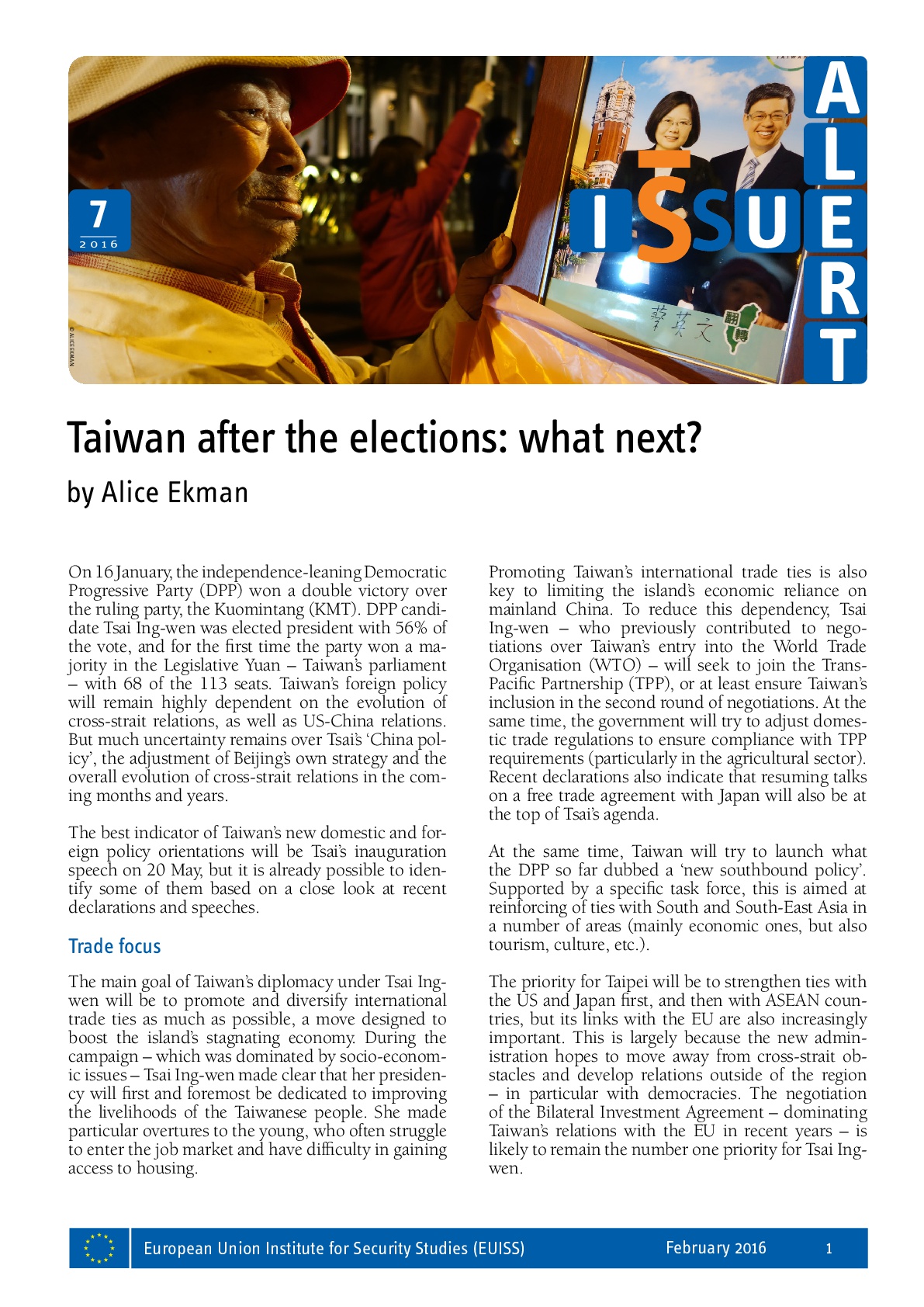Taiwan after the elections: what next?

On 16 January, the independence-leaning Democratic Progressive Party (DPP) won a double victory over the ruling party, the Kuomintang (KMT). DPP candidate Tsai Ing-wen was elected president with 56% of the vote, and for the first time the party won a majority in the Legislative Yuan – Taiwan’s parliament – with 68 of the 113 seats.
Taiwan’s foreign policy will remain highly dependent on the evolution of cross-strait relations, as well as US-China relations. But much uncertainty remains over Tsai’s ‘China policy’, the adjustment of Beijing’s own strategy and the overall evolution of cross-strait relations in the coming months and years.
The best indicator of Taiwan’s new domestic and foreign policy orientations will be Tsai’s inauguration speech on 20 May, but it is already possible to identify some of them based on a close look at recent declarations and speeches.

Available in:
Regions and themes
Share
Download the full analysis
This page contains only a summary of our work. If you would like to have access to all the information from our research on the subject, you can download the full version in PDF format.
Taiwan after the elections: what next?
Related centers and programs
Discover our other research centers and programsFind out more
Discover all our analyses
RAMSES 2024. A World to Be Remade
For its 42nd edition, RAMSES 2024 identifies three major challenges for 2024.
France and the Philippines should anchor their maritime partnership
With shared interests in promoting international law and sustainable development, France and the Philippines should strengthen their maritime cooperation in the Indo-Pacific. Through bilateral agreements, expanded joint exercises and the exchange of best practices, both nations can enhance maritime domain awareness, counter security threats and develop blue economy initiatives. This deeper collaboration would reinforce stability and environmental stewardship across the region.

The China-led AIIB, a geopolitical tool?
The establishment of the Asian Infrastructure Investment Bank (AIIB) in 2016, on a Chinese initiative, constituted an attempt to bridge the gap in infrastructure financing in Asia. However, it was also perceived in the West as a potential vehicle for China’s geostrategic agendas, fueling the suspicion that the institution might compete rather than align with existing multilateral development banks (MDBs) and impose its own standards.
Jammu and Kashmir in the Aftermath of August 2019
The abrogation of Article 370, which granted special status to the state of Jammu and Kashmir (J&K), has been on the agenda of the Bharatiya Janata Party (BJP) for many decades.





